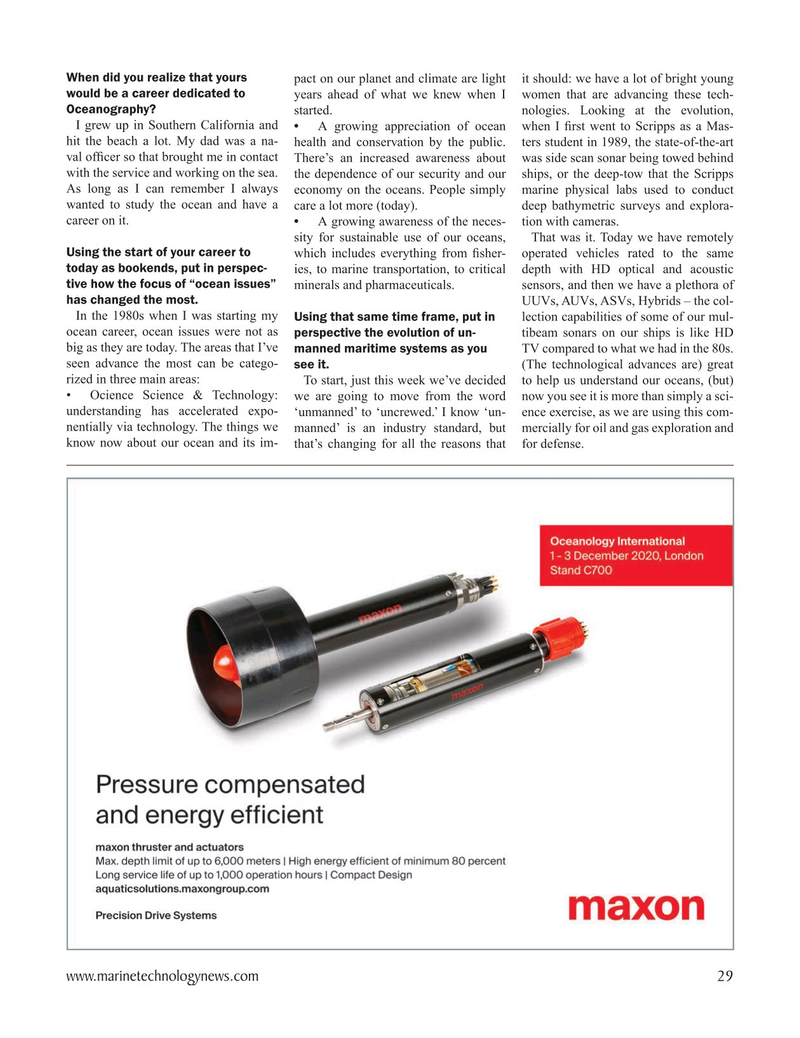
Page 29: of Marine Technology Magazine (September 2020)
Read this page in Pdf, Flash or Html5 edition of September 2020 Marine Technology Magazine
When did you realize that yours pact on our planet and climate are light it should: we have a lot of bright young would be a career dedicated to years ahead of what we knew when I women that are advancing these tech-
Oceanography? started. nologies. Looking at the evolution,
I grew up in Southern California and • A growing appreciation of ocean when I ? rst went to Scripps as a Mas- hit the beach a lot. My dad was a na- health and conservation by the public. ters student in 1989, the state-of-the-art val of? cer so that brought me in contact There’s an increased awareness about was side scan sonar being towed behind with the service and working on the sea. the dependence of our security and our ships, or the deep-tow that the Scripps
As long as I can remember I always economy on the oceans. People simply marine physical labs used to conduct wanted to study the ocean and have a care a lot more (today). deep bathymetric surveys and explora- career on it. • A growing awareness of the neces- tion with cameras. sity for sustainable use of our oceans, That was it. Today we have remotely
Using the start of your career to which includes everything from ? sher- operated vehicles rated to the same today as bookends, put in perspec- ies, to marine transportation, to critical depth with HD optical and acoustic tive how the focus of “ocean issues” minerals and pharmaceuticals. sensors, and then we have a plethora of has changed the most. UUVs, AUVs, ASVs, Hybrids – the col-
In the 1980s when I was starting my Using that same time frame, put in lection capabilities of some of our mul- ocean career, ocean issues were not as perspective the evolution of un- tibeam sonars on our ships is like HD big as they are today. The areas that I’ve manned maritime systems as you TV compared to what we had in the 80s. seen advance the most can be catego- see it. (The technological advances are) great rized in three main areas: To start, just this week we’ve decided to help us understand our oceans, (but) • Ocience Science & Technology: we are going to move from the word now you see it is more than simply a sci- understanding has accelerated expo- ‘unmanned’ to ‘uncrewed.’ I know ‘un- ence exercise, as we are using this com- nentially via technology. The things we manned’ is an industry standard, but mercially for oil and gas exploration and know now about our ocean and its im- that’s changing for all the reasons that for defense.
www.marinetechnologynews.com 29
MTR #7 (18-33).indd 29 9/11/2020 2:43:28 PM

 28
28

 30
30
